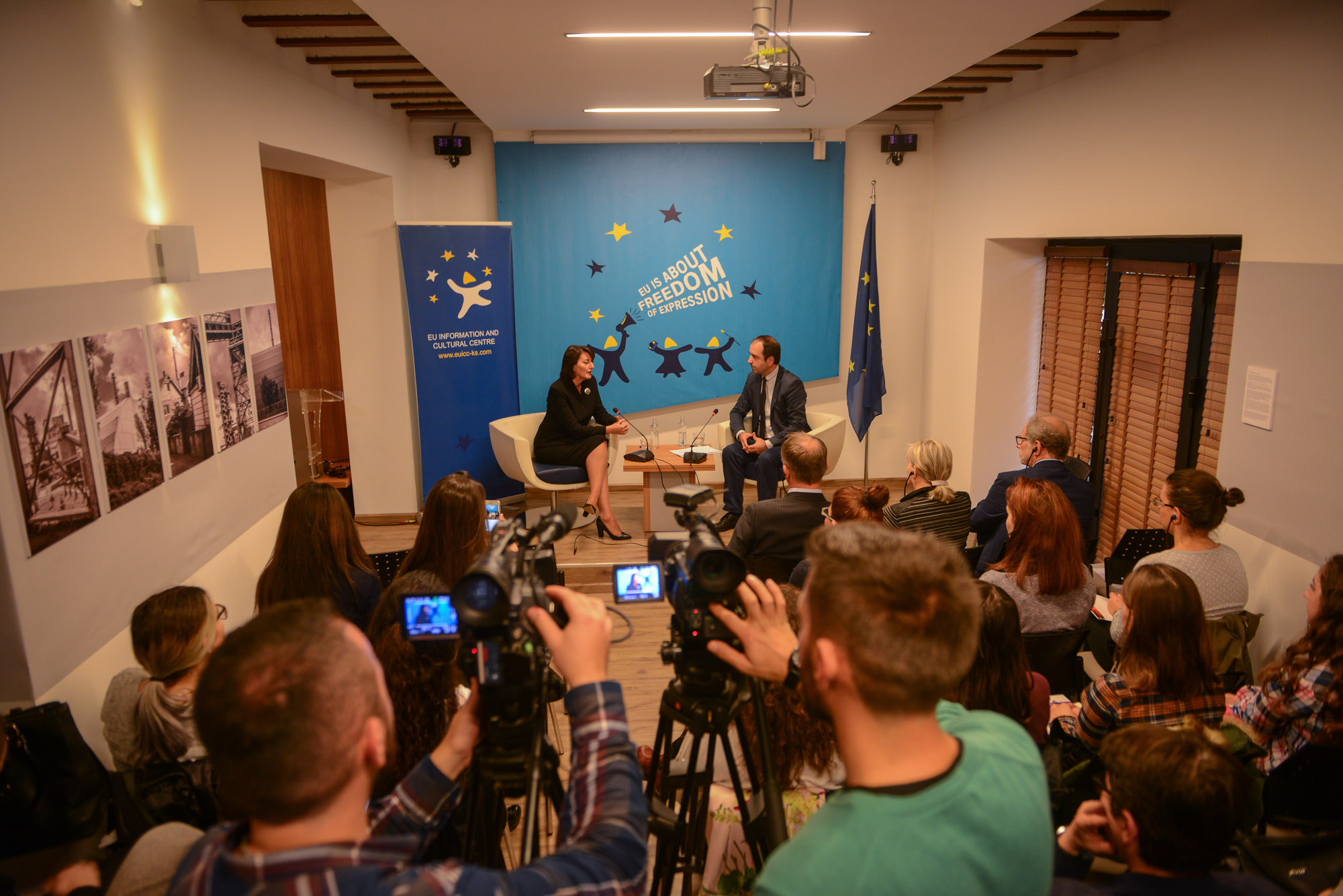October 31, 2016 | Monday
President Atifete Jahjaga spoke at the EU Information and Cultural Centre (EUICC) in Pristina on October 26, 2016 about the importance of giving voice to survivors of violence in Kosovo through legal mechanisms and awareness as part of the EU Master Class Series. “The memory of the green field of the Pristina Stadium covered with 5,000 dresses on Liberation Day, 12 June 2015, will always be in my memory,” said President Jahjaga recalling the day of art installation where victims of wartime sexual violence were recognized. At the event, President Jahjaga highlighted the work of the National Council for Survivors of Sexual Violence, established during her presidency in 2014. “Besides the pain I felt, the whole event gave me also a lot of hope as I was witnessing a great act of solidarity which came not only from Kosovo, but also from abroad by answering the call from artist Alketa Xhafa Mripa to donate a dress in support of war victims of sexual violence.” she continued.

President Jahjaga explained in detail why she felt the need to always stand by and support the marginalized groups of our community, throughout her career. “I belong to a generation where we all saw how our world built by our parents was shattered overnight, and we lived most of our childhood and young adulthood in fear. This is why I decided to join Kosovo Police after I finished my law degree. During my time at Kosovo Police I heard for the first time what really happened to women in Kosovo during the war “, said Jahjaga.
Asked by the moderator, Dardan Velija, EUICC team leader, why it took so much time for people to begin speaking about this, the president pointed to the mentality of the Kosovo society. “The patriarchal mentality had a major impact on why those women hid themselves and felt ashamed to talk about what they experienced,” she said.
“Establishing legal support programs for all victims is the most difficult and painful process for Kosovo. The moment when lawmakers in parliament raised questions and required medical examination of the victims instead of unifying in support, I have to admit that this was a moment when I felt very disappointed by our lawmakers”, said the president. Government is not the only stakeholder with a role in bringing reforms, however. The president noted the key role of civil society organizations in supporting reforms in this area and leading awareness raising campaigns to tackle stereotypes and encouraging survivors to come forward.
Representatives from women’s NGOs in Kosovo and from the business community became part of the discussion, both providing new ideas on how all of us can contribute and support the rehabilitation of the victims. “Economic empowerment of the victims is the key to their rehabilitation, and we all need to be committed to this task”, answered Jahjaga.
After sharing some of the touching stories she heard from rape victims, the president reassured the audience that she will never forget her promise to be the voice of these women, and that she will continue to dedicate herself to this sensitive issue.
The documentary, Thinking of You, which shows the artistic installation of Alketa Xhafa-Mripa and producer Anna Di Lellio, highlighted the solidarity of people in Kosovo and the world. As producer Di Lellio states in the documentary “While it is nice that celebrities donated dresses to the installation, it is more inspirational that ordinary people across Kosovo contributed to the cause”. The documentary was supported by a number of embassies present in Kosovo and the EU.
This Master Class was part of the EUICC campaign, EU is about Freedom of Expression.